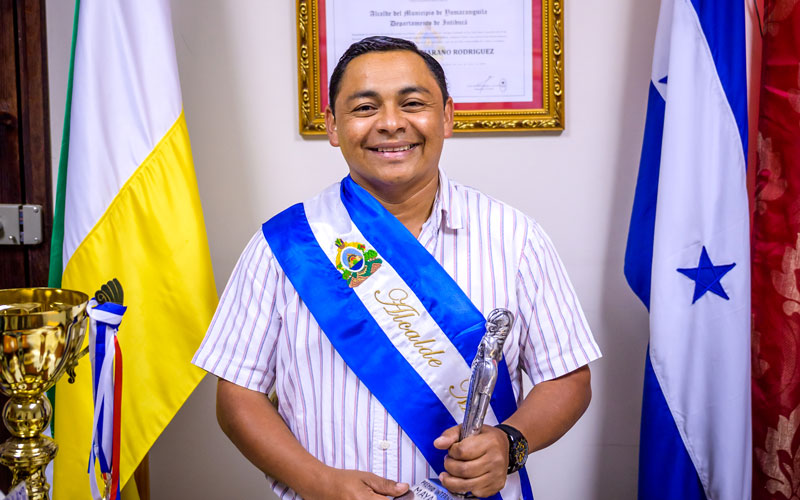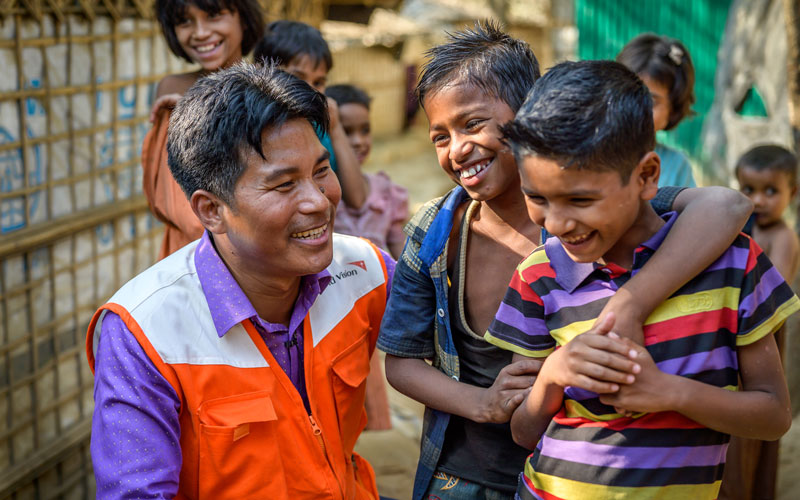Have you ever wondered if sponsoring a child really makes a difference? It does! Child sponsorship changes lives, for good. Here are six people whose lives have been transformed by sponsorship in big ways and small – and are now changing the world around them.
- Pauline Lokidor (Turkana, Kenya)
- Jose Rodriguez (Yamaranguila, Honduras)
- Atul Mrong (Bangladesh)
- Maga (Yerevan, Armenia)
Pauline Lokidor, Former sponsored child from Turkana, Kenya who is now a water management PhD researcher
“Today, I am doing my PhD but I have bigger dreams of building sustainable solutions to the water problems. I would like to be an inspiration and motivation to all the girls from nomadic communities to pursue their dreams. Your strength is within you.” - Pauline Lokidor
Pauline was trained to be a Turkana wife: to make traditional huts and milk the goats and camels. But today, she has a Bachelor’s and a Master’s degree under her belt and is studying her PhD, with her sights set on bringing water to her village so that girls like she was no longer have to walk hours every day fetching water instead of going to school.
“Perhaps I can even save the future life of a girl or woman from this daunting struggle. I wanted to change the narrative in Turkana in my small way,” Pauline says.
 “Because of sponsorship, I had access to a better education and programs that helped me define who I wanted to be. It’s one of the reasons why serving others is part of my life.” - Jose Rodriguez
Jose Rodriguez, Former sponsored child who is now the Mayor of Yamaranguila, Honduras
“Because of sponsorship, I had access to a better education and programs that helped me define who I wanted to be. It’s one of the reasons why serving others is part of my life.” - Jose Rodriguez
Jose Rodriguez, Former sponsored child who is now the Mayor of Yamaranguila, Honduras
Mayor Jose Rodriguez has held his position in office for 12 years. But he wasn’t born to the position of power – in fact, just the opposite. Jose was once a sponsored child and his experience motivated him to become a leader in his community in Yamaranguila.
Now a strong advocate for education, Jose believes it is the key to social development in the region.
"Education is the only way to fight poverty, and it’s the only way to ensure rational use of resources and create a good life."
 “When you are poor, you’re like a wave – making your way to shore, only to be pulled back into the deep. But as a sponsored child, I had someone who believed in me, and that’s why I am here today, serving the Rohingya in Bangladesh.” - Atul Mrong
Atul Mrong, Former sponsored child who is now the Deputy Operations Director of World Vision’s Bangladesh Refugee Crisis Response
“When you are poor, you’re like a wave – making your way to shore, only to be pulled back into the deep. But as a sponsored child, I had someone who believed in me, and that’s why I am here today, serving the Rohingya in Bangladesh.” - Atul Mrong
Atul Mrong, Former sponsored child who is now the Deputy Operations Director of World Vision’s Bangladesh Refugee Crisis Response
Atul knows what it’s like to be a child whose future hangs in the balance. He grew up in a poor family of seven children in Bangladesh and it helps him relate to the 450,000 Rohingya children who have arrived in the camps with nothing but the clothes they are wearing.
Atul has dedicated his life to helping vulnerable children. As Operations Director for World Vision’s Rohingya Refugee Response, he manages a USD$38 million programme in the world’s largest refugee camp in Cox’s Bazar, Bangladesh.
“It’s not just work, it’s a calling,” says Atul.
 “I remember myself seven years ago, and sometimes I think to myself, if not for sponsorship, where would I be now? It showed us we can do far more than just going to school or going to university. We can bring change in our lives and in the life of our community.” - Maga
Maga, Former sponsored child from Yerevan, Armenia who founded and operates the Youth for Development Foundation
“I remember myself seven years ago, and sometimes I think to myself, if not for sponsorship, where would I be now? It showed us we can do far more than just going to school or going to university. We can bring change in our lives and in the life of our community.” - Maga
Maga, Former sponsored child from Yerevan, Armenia who founded and operates the Youth for Development Foundation
“As a child I was so excited for World Vision staff to come to our house or call my mum to include me in activities - theatres, learning events, camps and excursions. All of these were so interesting to me as a little girl who had seen nothing in her life except the school and her family’s house,” remembers Maga.
Inspired by her sponsor’s investment in her life, Maga is now giving back. Maga and some friends have established a youth foundation that is helping support Syrian-Armenian refugee women to raise their voice. Artists are painting portraits of the women to tell their story, helping others in the community to understand them better while also raising funds to provide the women with financial support.
“Today, we are teaching others, but we are also continuing to learn ourselves,” says Maga.